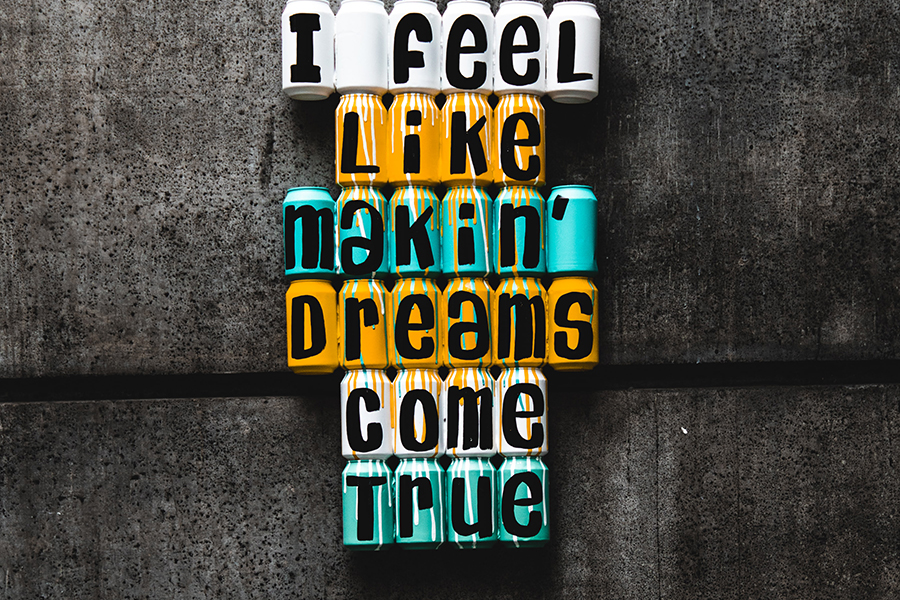Everyone is writing articles, op-eds, and features today on how to deal with the COVID-19 pandemic. And most of them are regurgitations of the same analytic approach we see time and time again.
But the mindset begins to shift when we look at crisis creatively. What begins to emerge is a view that is different than what is readily available. A nuanced view. A view that is left undiscussed. And frequently, this view might seem unpopular or contrarian to existing norms.
And that is precisely why the Creator Mindset view on crisis is so important. Because it offers you a different way to look at the world, and in that difference is the opportunity to survive and thrive.
Here are three things we need to do today to help our business overcome crisis and survive, but thrive in times of hardship:
1. Question Experts
Dr. Walter Freeman pioneered early neurology with a surgery he felt would help relieve patients of a whole host of symptoms. He was an expert. His intentions were grand. His results were tragic. What ended up happening was that this expert came up with one of the worst blemishes in the history of medicine. He came up with the lobotomy—a brutal surgery that removed part of the brain and left scores of patents in a zombie-like state.
Yet today, we treat experts like they are all-knowing and all-powerful beings. And when we do that, creativity is lost. Questioning the experts is a critical feature of the Creator Mindset. What are the experts predicting or doing today that in some years’ time will be seen as tragic—just like Dr. Freeman’s lobotomy? It allows us the freedom—and responsibility—of not taking what we are presented with at face value. It creates an environment where, yes, even the experts are challenged. This is not only a good thing in business— it’s a good thing for society as well.
In our business, we need to question why things are the way they are and apply as much creativity to counter analytics to figure out a unique path forward. When we ask the experts, we begin to awaken a more creative version of ourselves. A more authentic voice of who we are.
2. Be Yourself
Authenticity in times of crisis is critical. And this authenticity is ripe for creativity to be expressed in every facet of your organization, from leadership to staff. Take, for example, the Procter & Gamble reaction to Hurricane Katrina. P&G employees were savaged by the aftermath of that formidable hurricane in August of 2005, just like everyone else in the US. Many lost family and close friends, and many were desperate to help in any way. In an authentic move that received little attention or fanfare, P&G set up a mobile laundry truck, replete with washers and dryers, and sent it to New Orleans to give people affected by Katrina access to clean clothes, for free. P&G doesn’t sell trucks or washing machines, but they do sell Tide laundry detergent. And that gesture of giving away Tide complete with full laundry service was an authentic offer of help that built compassion.
What can you do in your business or career today when faced with a crisis to be an authentic version of yourself? When you think creatively, this becomes clear. Be true to who you are so that you can solve the problem as creatively as possible. It worked for P&G, and it will work for your business or career too.
3. Fight What Comes Naturally
A recent study showed that human beings think about negative things most of the day. That is what comes naturally to us if we allow it. But fighting what comes naturally to us will enable us to be in touch with our creative core—our identity. Just like P&G found their identity as a compassionate company through helping people during the Hurricane Katrina crisis, you will also discover what your business or career needs to do to fight pessimism and embrace optimism.
It is all about an attitude shift from the negative to the positive to allow us to find creative solutions to the crisis that we face.
Freaking out and losing control is what comes naturally to human beings in times of crisis. Being pessimistic and downtrodden are well-worn traits of humanity. But here’s the thing: creativity cannot thrive while our biological “natural” instincts dictate us. We need to fight what comes naturally to us—which is seeking comfort—because comfort kills creativity.
What in your business or career are you doing today because you have been lulled into a false sense of security? It’s not a matter of whether change or crisis will emerge on the horizon. It’s a matter of when. And fighting our human nature to be negative about it will enable you to gain a competitive advantage in coming up with a creative solution to conquer the problem.
These three tools of learning how to thrive in hard times come from a deep reservoir of creativity that we are all born with, yet we choose not to use as we get older and face problems in our businesses and careers. Because creativity is indeed a central trait of the human experience that most of us, sadly, do not tap into, they are a good starting point the next time crisis hits. They will enable you to solve problems that people say are unsolvable.
Creativity sees the world as it can be, not as it is. And how powerful can that be in our current climate of crisis?




































